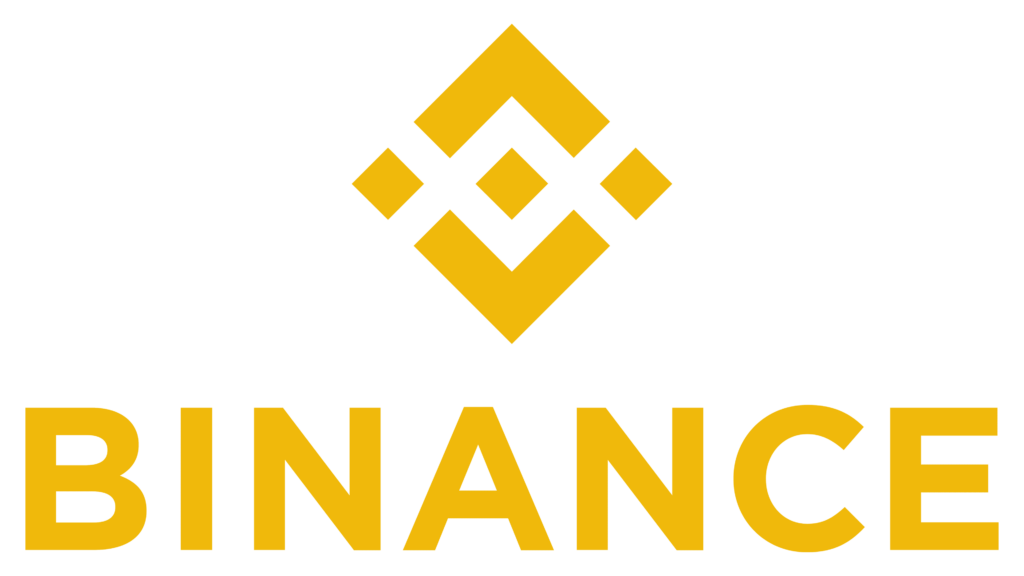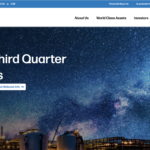Are you considering investing in natural gas? With the growing demand for energy and the shift towards cleaner fuels, natural gas is becoming an increasingly attractive investment option. However, as with any investment, there are risks and opportunities to be aware of.
In this guide, we’ll explore everything you need to know about how to invest in natural gas.
What is natural gas?
Natural gas is a fossil fuel that is formed from the decomposition of organic matter over millions of years. It is a versatile fuel that can be used for heating, cooking, and electricity generation.
Natural gas is also becoming an increasingly popular fuel for transportation, as it emits less pollution than gasoline or diesel. As a result, demand for natural gas is expected to continue to grow in the coming years.
Investing in natural gas can be a smart move for investors looking to diversify their portfolios and capitalize on the growth potential of the energy sector. However, it’s important to understand the risks and opportunities involved in investing in natural gas before making any decisions.
Why invest in natural gas?
Investing in natural gas provides investors with an opportunity to diversify their portfolio and potentially earn high returns. Natural gas is a valuable commodity that is in high demand and has a limited supply, which can drive up prices. Furthermore, natural gas is a cleaner-burning fossil fuel than coal or oil, making it an attractive investment for environmentally-conscious investors.
How is natural gas traded?
Natural gas is traded on various exchanges around the world, including the New York Mercantile Exchange (NYMEX) and the Intercontinental Exchange (ICE). Natural gas prices are determined by supply and demand factors, as well as geopolitical and economic factors.
Benefits of Investing in Natural Gas
Diversification
Investing in natural gas can provide investors with diversification benefits. Natural gas prices are not highly correlated with other asset classes such as stocks and bonds, which can help reduce overall portfolio risk.
High Potential for Profit
Investing in natural gas can potentially provide investors with high returns. Natural gas prices can be volatile, which can create opportunities for investors to earn significant profits.
Hedge Against Inflation
Natural gas is often used as a hedge against inflation. Inflation can cause the value of currencies and assets to decrease over time, but the value of natural gas tends to increase with inflation.
Lower Emissions
Natural gas is a cleaner-burning fossil fuel than coal or oil. Investing in natural gas can help promote the use of a cleaner energy source, which can help reduce greenhouse gas emissions.
How to Invest in Natural Gas: Different Ways
Investing in Natural Gas Stocks
Investing in natural gas stocks is a popular way to gain exposure to the natural gas industry. Natural gas stocks can provide investors with exposure to the production, distribution, and marketing of natural gas.
What are natural gas stocks?
Natural gas stocks are shares of companies that are involved in the production, distribution, or marketing of natural gas. These companies can include exploration and production companies, pipeline companies, and utilities.
How to invest in natural gas stocks?
Investors can invest in natural gas stocks by buying shares of individual companies or by investing in natural gas-focused exchange-traded funds (ETFs). Investors should conduct thorough research on individual companies before investing to assess their financial health and growth potential.
Top natural gas stocks to consider
Some of the top natural gas stocks to consider include:
- Chesapeake Energy (CHK)
- Cabot Oil & Gas (COG)
- Devon Energy (DVN)
- EQT Corporation (EQT)
- Range Resources (RRC)
Investing in Natural Gas ETFs
Investing in natural gas ETFs is another way to gain exposure to the natural gas industry. Natural gas ETFs can provide investors with diversified exposure to the natural gas industry, including natural gas producers, pipeline companies, and utilities.
What are natural gas ETFs?
Natural gas ETFs are exchange-traded funds that invest in companies that are involved in the production, distribution, or marketing of natural gas. These ETFs can provide investors with exposure to the natural gas industry without having to invest in individual companies.
How to invest in natural gas ETFs?
Investors can invest in natural gas ETFs by buying shares of ETFs that are focused on the natural gas industry. Some popular natural gas ETFs include:
- United States Natural Gas Fund (UNG)
- First Trust Natural Gas ETF (FCG)
- Global X MLP ETF
Investing in Natural Gas Futures
Investing in natural gas futures is another way to gain exposure to the natural gas industry. Natural gas futures allow investors to bet on the future price of natural gas.
What are natural gas futures?
Natural gas futures are contracts that allow investors to buy or sell a specified amount of natural gas at a predetermined price and date in the future. Natural gas futures are traded on various exchanges, including the New York Mercantile Exchange (NYMEX) and the Intercontinental Exchange (ICE).
How to invest in natural gas futures?
Investors can invest in natural gas futures by opening a futures trading account with a brokerage firm that offers natural gas futures trading. Futures trading can be complex and risky, so investors should only invest in natural gas futures if they have a thorough understanding of the market and are willing to accept the risks involved.
Investing in Natural Gas Mutual Funds
Investing in natural gas mutual funds is another way to gain exposure to the natural gas industry. Natural gas mutual funds can provide investors with diversified exposure to the natural gas industry, including natural gas producers, pipeline companies, and utilities.
What are natural gas mutual funds?
Natural gas mutual funds are mutual funds that invest in companies that are involved in the production, distribution, or marketing of natural gas. These mutual funds can provide investors with exposure to the natural gas industry without having to invest in individual companies.
How to invest in natural gas mutual funds?
Investors can invest in natural gas mutual funds by buying shares of mutual funds that are focused on the natural gas industry. Some popular natural gas mutual funds include:
- Fidelity Select Natural Gas Portfolio (FSNGX)
- Vanguard Energy Fund (VGENX)
- T. Rowe Price New Era Fund (PRNEX)
Risks of Investing in Natural Gas
Like any investment, investing in natural gas comes with risks. Some of the key risks of investing in natural gas include:
- Price volatility: Natural gas prices can be volatile, which can create significant gains or losses for investors.
- Geopolitical risks: Natural gas prices can be influenced by geopolitical events such as wars, sanctions, and political instability in producing countries.
- Regulatory risks: Natural gas companies are subject to regulations from various government agencies, which can impact their profitability.
- Environmental risks: Natural gas is a fossil fuel that is associated with environmental risks, such as greenhouse gas emissions and water contamination.
How to buy natural gas on Fortrade
Fortrade is a leading online brokerage firm that allows traders to invest in a wide range of financial instruments, including natural gas. The company is regulated by the Financial Conduct Authority (FCA) in the UK and has been operating since 2013. Fortrade offers a user-friendly trading platform, competitive spreads, and a wide range of trading tools to help traders make informed investment decisions.
If you’re interested in buying natural gas on Fortrade, here are the steps to follow:
- Open an Account: The first step to buying natural gas on Fortrade is to open a trading account. You can do this by visiting the Fortrade website and clicking on the “Open Account” button. Follow the prompts to provide your personal information and complete the registration process.
- Verify Your Account: Once you have registered, you will need to verify your account by providing proof of identity and address. This is a standard procedure that all regulated brokers are required to follow.
- Fund Your Account: To buy natural gas on Fortrade, you will need to fund your account. Fortrade accepts a range of payment methods, including credit/debit cards, bank transfers, and e-wallets. Choose the method that is most convenient for you and follow the prompts to complete the transaction.
- Navigate to the Trading Platform: Once your account is funded, navigate to the Fortrade trading platform. The platform is web-based and can be accessed from any device with an internet connection. You can also download the Fortrade app to your smartphone or tablet.
- Search for Natural Gas: In the trading platform, search for natural gas by typing “natural gas” into the search bar. You should see a list of natural gas contracts that are available for trading.
- Place an Order: Once you have found the natural gas contract that you want to trade, place an order by selecting the contract and clicking on the “Buy” button. Choose the number of contracts that you want to buy and set your stop loss and take profit levels.
- Monitor Your Trade: Once your trade is open, monitor it closely to ensure that it is moving in the direction that you want. You can also use the trading tools provided by Fortrade to analyze market trends and make informed trading decisions.
In conclusion, buying natural gas on Fortrade is a simple and straightforward process that can be completed in just a few steps. By following these steps and using the trading tools provided by Fortrade, you can make informed investment decisions and potentially profit from the natural gas market.
Conclusion
Investing in natural gas can provide investors with diversification benefits, high potential for profit, a hedge against inflation, and exposure to a cleaner-burning fossil fuel.
There are several ways to invest in natural gas, including investing in natural gas stocks, ETFs, futures, and mutual funds. However, investing in natural gas comes with risks, including price volatility, geopolitical risks, regulatory risks, and environmental risks. As with any investment, investors should conduct thorough research and consult with a financial advisor before investing in natural gas.
Frequently asked questions
What is natural gas?
Natural gas is a fossil fuel that is primarily composed of methane, although it can also contain small amounts of other hydrocarbons. It is a clean-burning fuel that is used for heating, cooking, and generating electricity.
How is natural gas produced?
Natural gas is produced from underground reservoirs of natural gas or from shale formations through a process called hydraulic fracturing or “fracking.” The gas is extracted using drilling rigs and then transported through pipelines to processing plants.
Why invest in natural gas?
Investing in natural gas can be a good way to diversify your portfolio and potentially earn a return on your investment. Natural gas is in demand for heating, electricity generation, and as a feedstock for the chemical industry, making it a valuable commodity.
How can I invest in natural gas?
There are several ways to invest in natural gas, including investing in natural gas futures contracts, exchange-traded funds (ETFs) that track natural gas prices, or individual natural gas companies.
What are the risks of investing in natural gas?
Investing in natural gas carries several risks, including fluctuations in natural gas prices due to changes in supply and demand, changes in government regulations or policies, and geopolitical risks that can affect the supply of natural gas.
What is the outlook for natural gas prices?
The outlook for natural gas prices depends on many factors, including the supply and demand balance, weather patterns, and the overall state of the economy. However, some analysts predict that natural gas prices will continue to rise over the long term due to growing demand for natural gas in developing countries and increased use of natural gas as a cleaner alternative to coal for electricity generation.
How do environmental concerns affect natural gas investing?
Environmental concerns such as climate change and air pollution can have a significant impact on the natural gas industry, as policymakers and consumers increasingly demand cleaner energy sources. As a result, investing in natural gas may carry some reputational risks for investors who prioritize sustainability and environmental responsibility.







